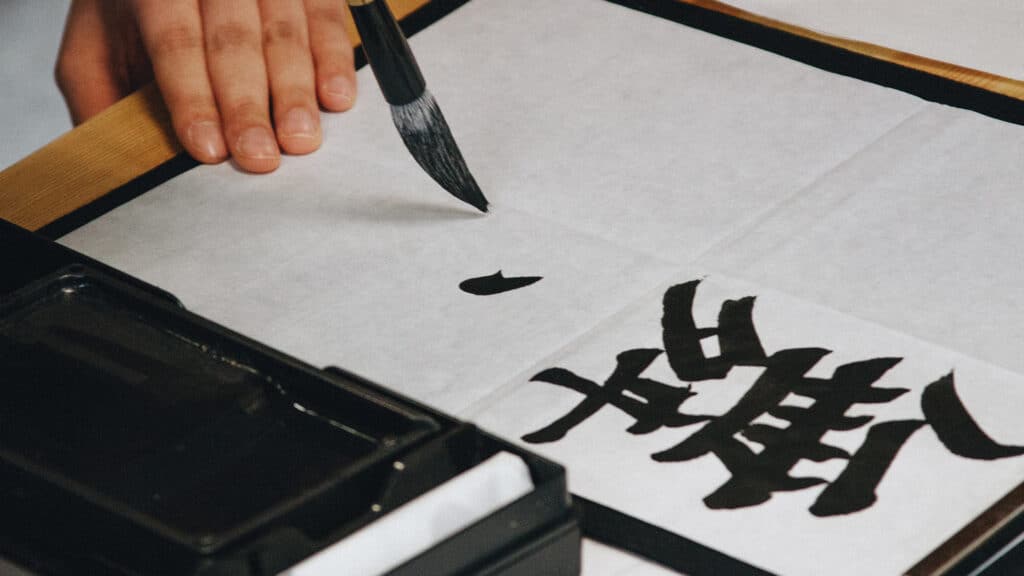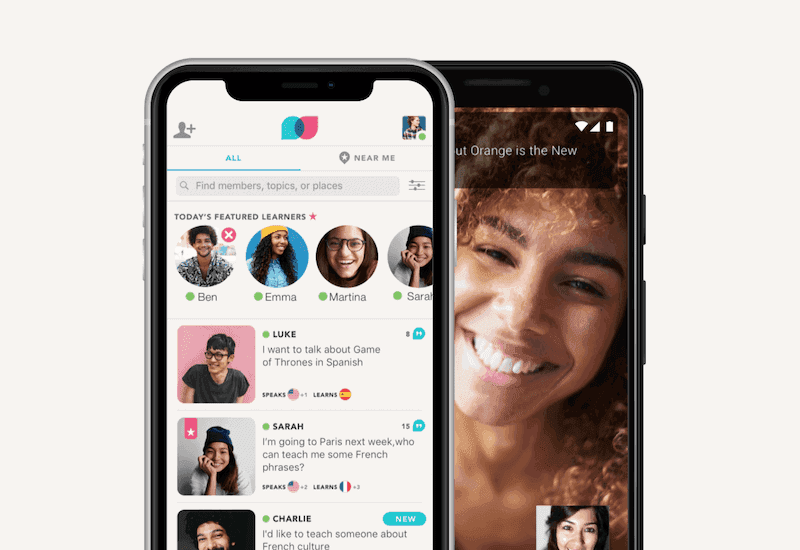Are you hoping to learn Japanese? Learning a new language is challenging, but it is a fun and rewarding process, and you can start at home today. Many people think studying the Japanese language is difficult to master. Although it is true that there are certain aspects of the language that make it difficult, there are many ways to get around it. In this blog, we will show you all the Japanese tips and where to learn the Japanese language so you can grasp this language quickly and efficiently.
One of the best ways to explore Tokyo is to visit the local areas and immerse yourself in the local culture. If you want to explore local areas, we have created scavenger hunt adventures personalised to your interests, filled with fun facts, clues and puzzles. If you’re curious, you can check out the games here! Check out the Flip Japan Games here! |
Why Learn Japanese?

Travel or Move to Japan
As a homogenous society, Japanese is the main language used and spoken in Japan. Although all Japanese people are required to study English in school, many cannot speak it well enough to go beyond an introduction or don’t have the confidence to do so. If you’re planning to travel or move to Japan, you should probably pick up Japanese so you can make friends or navigate a career more easily.
Japanese Culture

Japan has a rich and thousands-years-long history and culture. There are beautiful traditions, customs, literature, art, films, and more, and you can understand and appreciate them better by learning the nuances of the Japanese language.
To Watch Anime or Read Manga
While there are loads of Japanese anime and manga that have been translated and subbed, there are many others that are not. Even some translations and subs by volunteer translators online and not professional companies may be inaccurate. If you’re a hardcore fan of Japanese anime and manga, then it’s best to learn the language and go straight to the source yourself.
Work in a Japanese Company

If you are planning to work in a Japanese company overseas, learning Japanese may not be a requirement, but it would be helpful and appreciated by your Japanese co-workers if you took the time and effort to learn just the basics.
If you want to work in a Japanese company in Japan, it gets a lot harder. Many Japanese companies in Japan require Japanese language skills. Previously, a Japanese Language Proficiency Test (JLPT) N2 certificate would have sufficed, but an increasing number of Japanese companies now ask for an N1 certificate (the highest level of proficiency). Creative industry firms are usually more lenient, but if you have plans of working for a corporate Japanese company in Japan, you best get started right away!
Being Great at Karaoke
Karaoke is a big part of Japanese nightlife and is often the highlight of many great nights out. While there’s a wide range of songs in various languages available (English, Korean, Chinese, Spanish, Italian, French, etc.), impress your Japanese friends by attempting a Japanese song. There’s no better way to nail the pronunciation and emotion than by being able to speak the language.
Date Someone That’s Japanese
As mentioned earlier, not many Japanese people speak English well or are comfortable speaking it. If you want a relationship with a Japanese person (who wants to date you not just because you’re foreign), then learning Japanese is crucial. Studying and mastering the Japanese language will allow you to convey and understand each other’s thoughts and feelings better, reduce misunderstandings, and increase your chances of having a Japanese partner.
The Japanese Language
Now that we’ve covered some of the many reasons why someone wants to learn Japanese, (hopefully you can identify with at least one of them), let’s now take a look at the Japanese language.
Writing

The Japanese written language is infamous as there are three different sets of characters, and learning to use them together can be difficult. There’s hiragana (ひらがな), which is commonly thought of as the “alphabet” of Japanese; there’s katakana (カタカナ), which is usually used to write a word that’s been borrowed from other languages; and then there’s kanji (漢字), borrowed from China, which is used to differentiate words that have the same “spelling” (i.e. same “alphabets”).
The last bit about kanji may be a bit confusing, so here’s an example: the words for rain and candy in Japanese are both pronounced ‘ah-meh’ and spelled ‘あめ’ in hiragana. To differentiate these two words in writing, we use kanji. Though they are still pronounced the same way, we understand in writing that the kanji ‘雨’ means ‘rain’, and that the kanji ‘飴’ means ‘candy’.
Japanese Grammar

There are no gendered articles or distinctions between plural and singular, so you may think Japanese grammar is easy to learn. To a certain extent, it is. You can easily learn the basics of Japanese grammar and be able to hold a decent conversation and live in Japan.
Japanese Counters
One of the most interesting yet challenging parts of learning conversational Japanese grammar will probably be the counters. Where you could just say “three bananas”, “two dogs” or “five apples” in English, there are different numeric counters in Japanese depending on the subject’s appearance. And even within each counter, there are slight alterations to the pronunciation depending on the number. For example, “one small dog” is “i-ppiki”, but “three small dogs” is “san-biki”.
Honorific Language

There are different forms of the Japanese language that change depending on who you are talking to. For example, if you are speaking to someone younger than you or in a “lower position”, you would use “humble language”. When you talk to a customer, client, boss, or someone in a “higher position”, you use “respectful language”. When you talk to your friends or family members, you use “casual language”. And when you talk to a stranger, an elder, or your colleagues, you use “polite language”.
There are exceptions, but it is a great general rule of thumb for understanding the Japanese language.
If you’re planning to work in a Japanese company, it gets a lot harder, and you have to put a lot of time and effort into learning business Japanese. Not only are there numerous conjugations, but how and when you use them depends on the person you’re speaking with and if you are “below” or “above” them, and whether you’re “receiving” or “giving” something, or “receiving someone giving you something”.
Business Japanese is so difficult to master that even Japanese people buy textbooks on business Japanese to study. A bit of trivia: these textbooks are most popular in March and April when fresh graduates are about to join corporate companies for the first time and need to brush up on their business Japanese.
Pronunciation
Japanese pronunciation is quite straightforward. There are no accents and very few varieties of intonation. The “R” and “L” sounds don’t exist. In their place is an in-between of both.
Tips to Get Started with Japanese Today

1. Start with common words and phrases.
If you aren’t studying Japanese in a classroom and have full reign over your curriculum, start with words and phrases that you commonly use in your own language. Alongside the typical “My name is [name], I’m from [country], and I am a [occupation]”, learn how to say “I’m going to the toilet”, “I want [something]”, “I’m getting another drink”, or “I don’t need a plastic bag”. You may use these phrases a lot in your daily and social life. Repeating them in Japanese over and over, with a few variations, will help you grasp both verbs and nouns better. This Japanese tip will help you improve quickly and effectively.
2. Forget about kanji… for now.
Start with hiragana and katakana. These two sets of alphabets will help you speak and listen to Japanese better. Besides, unless you’re studying Japanese for a paper examination or to work in an office, learning to write kanji is quite redundant as you’ll most likely be typing on your phone or computer, which will automatically turn the alphabets into kanji for you. You will rarely be writing kanji by hand.
3. Consult foreigners who speak Japanese .
This might be a strange Japanese tip to you. Japanese teachers may teach by the book, but that’s not necessarily the best way to learn. Foreigners who speak Japanese, especially those who speak the same language as you, may be able to better explain Japanese grammar in relation to the language they share with you.
4. Set a goal.
It’s easy to lose track of your studies if you just wing it. Instead, set a daily goal of anywhere between 15 minutes to one hour of Japanese language studies every day, depending on your schedule. Or, if you’re using textbooks, set a goal relative to the number of pages or chapters in a textbook.
5. As much as you can, speak Japanese
Do not be shy or afraid of making mistakes. You are studying the language, and no one expects you to be perfect straight away, so speak Japanese and allow others to correct you if you make a mistake. Also, speaking Japanese more frequently will get you more comfortable with the language, and studying it will be easier. This is an important Japanese tip for you!
6. Change it up!
There are many different ways to study the Japanese language, and if you find yourself getting tired of one platform, just switch to another to keep it exciting, fun, and fresh. Don’t forget to take breaks; you don’t want to burn out.
7. Carry a notebook.
This Japanese tip might seem like an obvious tip, but it is important. If you hear a word that you don’t know, take a few seconds to write it down and then review it at the end of the day. After a week, you may have a whole list to learn. Review those words over and over and incorporate them into your conversations or studies. After all, there is a reason you heard it in the first place, and it’s most likely because it’s commonly used in daily conversation.
Learn Japanese in Your Daily Life

Watch Japanese Anime
This is a fun way to learn Japanese, but keep in mind that some slang words you hear in anime are not actually commonly used. Instead, watch anime to improve your pronunciation and grasp on grammar. Most Japanese anime will use proper classroom grammar as they are marketed towards youths. Once you have grasped proper grammar, feel free to use it more casually or freely in conversation.
Read Japanese Manga

While manga is enjoyed by people of all ages in Japan, there are some marketed specifically for youths and thus will include ‘furigana’, small alphabets above kanji to help you read them. Some of these mangas include Doraemon, Pokémon, and Naruto.
Watch Japanese Variety Shows
These shows, usually comedy shows or game shows, will spell out quotes, funny expressions, and emphasised phrases in large block letters, which will help you learn to read Japanese characters better. Plus, these shows and the audiences’ reactions are often hilarious, so it makes for an entertaining Japanese language lesson.
Listen to Japanese Music
This tip isn’t for everyone, but if you enjoy Japanese music, then you should take advantage of it and turn this leisure activity into a lesson! Look up the lyrics to your favourite Japanese songs and study the characters. At some point, you’ll see the same characters repeat themselves, and a translation of the song will help you learn what those words are.
Watch Japanese Movies and TV Shows

Unlike Japanese anime, sentences spoken in Japanese movies and TV shows may not always be grammatically correct or by the book, but they do show you how Japanese people actually speak. If you have more or less grasped textbook Japanese grammar, then watching Japanese movies and TV shows will show you how to use it more naturally and casually.
Learn Japanese Through Books
If you study better with physical books, then check out some of these textbooks.
Genki Textbooks
For complete beginners, you can choose Genki textbooks to study Japanese. Genki is one of the most famous textbook series and is widely used to learn Japanese. It is a great textbook series to help you build a solid foundation in the Japanese language.
Lonely Planet Phrasebook and Dictionary
For touring the country, the Lonely Planet Japanese Phrasebook & Dictionary is an excellent choice. If you are planning your trip to Japan, then this is a great book to help navigate around. The phrases and vocabulary in this book are commonly used and will surely help you in your daily life.
Living Language Japanese
From beginner to advanced, the 3-set coursebook, Living Language Japanese, is a great choice if you are planning to move to Japan or want to master the daily language. It is thorough but also practical.
Learn Japanese Online with Japanese Courses
If you prefer a more outlined and regulated learning experience, or if you don’t think you can keep yourself on track, sign yourself up for a course.
Udemy

This is one of the most popular Japanese language courses. It focuses on helping you master pronunciation and writing and teaches introductory phrases. Here are some of our favourite courses and quick Japanese tips for you:
- Online Japanese Beginner Course helps you build a foundation with Japanese hiragana and katakana reading and writing. This course focuses on helping you improve your overall Japanese pronunciation and daily basic greetings.
- Comprehensive Essential Japanese for beginners focuses on learning everyday language that you might need when travelling or living in Japan. From self-introduction to asking for directions and how to order in restaurants, they cover all the essential language you need.
- Japanese pastry course does not necessarily to learn the Japanese language, but if you want to learn more about Japanese food culture, then have a look at this Japanese pastry course. They are taught in English by Asami, a passionate Japanese pastry chef, and you can dive deep into the Japanese pastry world with her.
Rocket Languages

Rocket Languages is one of the leading platforms for online language courses. Over 1,200,000 people have used their courses and mastered a new language. They also let you try it out for free first, so you can try before you buy!
Japanese Pod 101

There are many great resources you can access through Youtube. One of the most popular is Japanese Pod 101. Their YouTube channel has countless videos teaching you Japanese and walking you through the process. They also have a website and app with bite-sized audio or video Lessons. They offer a lot of Japanese tips for you and with as little of a commitment as 3 dollars per month, you will be able to start learning right away. Check their website here.
Learn Japanese with Locals
For more personalised and casual lessons, you may want to try using a tutor who will design a curriculum that fits you and your needs. This is an important Japanese tip and tool for you to quickly improve your Japanese daily conversation.
Preply

This online platform pairs you up with a private tutor who will teach you Japanese via an online chatbox. Preply will ask you several questions regarding your purposes and goals for learning Japanese and then pair you up with an appropriate tutor. We have a 30% off discount for your first lesson with them so if you’re interested, check it out here.
Global Penfriends

Remember when penpals were a thing? Well, it actually still is. This website gives you a penpal in Japan to write to and practice Japanese with. The interface might not look too great, but the website is legitimate, works fine, and will get you a penpal in no time.
Learn Japanese with Mobile Apps
For the on-the-go learner, mobile apps are a great way to learn the language in bits and pieces throughout the day. Fifteen minutes here before lunch, ten minutes there before a shower, you could finish one to two hours’ worth of lessons without even noticing it.
FluentU

Instead of learning vocabulary and alphabets by the book, FluentU helps you learn the Japanese language through real-life scenarios, Japanese music, and culture. You can download the app and also access the website to study. They are offering a 14-day trial, you can check it out here.
Duolingo

This is arguably the most famous language studies app out there, its famous green owl mascot advertised on various websites. Duolingo turns their short lessons into games where you can win badges and unlock new lessons (for example, you can unlock a “flirting” section with coins that you’ve earned). One downside to Duolingo is that no explanations are given, and it expects the user to learn intuitively.
Tandem

This app helps you find language exchange opportunities. It has over a million active users who speak various languages. The main chat function allows you to chat with a Japanese-speaking person, and you can learn from them while also teaching them your language. While a language exchange does not lay out a proper curriculum, it prompts you to use Japanese to explain things to your partner and thus gets you more comfortable speaking Japanese. If language exchanges aren’t your thing, Tandem also offers tutoring services. The pro version starts at just $3 per month!
Start Your Japanese Language Journey Today
Learning Japanese may seem daunting at first, but with the right approach and resources, it becomes an enjoyable and rewarding experience. Whether you’re fascinated by Japanese culture, planning to visit or move to Japan, or simply want to expand your linguistic skills, taking the first step to learn the Japanese language will open up a world of opportunities.
By incorporating these tips and using the various tools and resources mentioned in this blog, you’ll find yourself making steady progress. Remember to stay motivated, set achievable goals, and most importantly, have fun along the way. Sign up for our 5-day challenge to kickstart your journey and start speaking Japanese confidently. Your adventure into the world of Japanese language and culture awaits!
Stay tuned for more information about Japan travel, Japanese culture, moving to Japan, living in Japan, Japanese language, and more.











